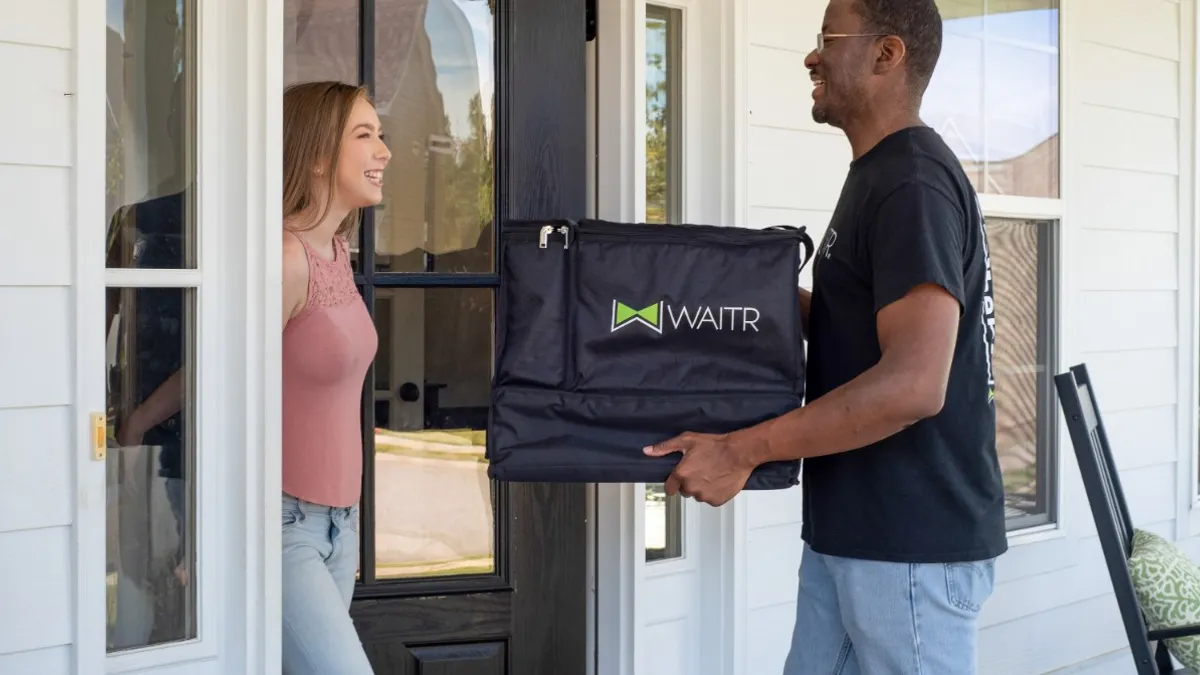Dive Brief:
- Food delivery service Waitr announced a new partnership yesterday with digital food ordering site Olo to streamline ordering through Waitr and Bite Squad's restaurant partners.
- The collaboration gives Waitr access to Olo Rails, which allows restaurant operators to list their menu offerings on third-party sites and to use a single interface for delivery orders. The announcement follows a similar partnership between Uber Eats and Olo introduced in June.
- Waitr's collaboration with Olo will also offer it access to new restaurant brands.
Dive Insight:
As food delivery companies expand, they're forming new partnerships with third-parties and restaurant chains to integrate point-of-sale systems: Just Eat's acquisition of management system Practi and Grubhub's acquisition of LevelUp in late 2018 represent a growing desire among operators to streamline off-premise.
Waitr's partnership with Olo, coming two months after Uber Eats' partnership with the service, is likely part of the delivery company's attempt to stay competitive with larger players, especially in the independent restaurant space that it primarily serves.
On the restaurant side, off-premise operations that eliminate the need for tablet farms or for restaurant employees to manually input delivery orders gets rid of a major hurdle of food delivery. Point-of-sale operator NCR partnered with DoorDash and Grubhub in 2017 to eliminate the need for separate tablets for the two delivery platforms; Square for Restaurants and Chowly offer automatic order processing and payment for restaurants using Caviar, Postmates and DoorDash. The NCR integration was also said to improve B2C communication, eliminating a lag between an item being unavailable on a store's menu and a delivery app removing it.
High-powered POS systems claim that they ensure greater order accuracy and efficiency, an attractive prospect for a segment where having a leg up in technology that minimizes user frustration has been one way for companies to stand out from the pack. Uber Eats, for example, rolled out a redesign of its app in April to add a tracking feature and resolve issues with order cancellations and delays. The platform leads the field in location tracking technology for workers, whereas competitors such as Grubhub don't always have GPS integration since many restaurants have to take over delivery operations themselves.
National chains have started joining up with third-party food delivery services directly, such as Chipotle with DoorDash and Dunkin' with Grubhub in New York City, as well as DoorDash in select markets elsewhere, so that delivery orders are integrated into the store's point-of-sale systems. The partnerships have allowed chains to take advantage of delivery's geofencing technology, which monitors traffic and distances to guarantee that meal orders are fresh when they arrive. In a competitive market, solving the "soggy fries" issue remains critical for delivery services to retain customers and to project an image of reliability.














